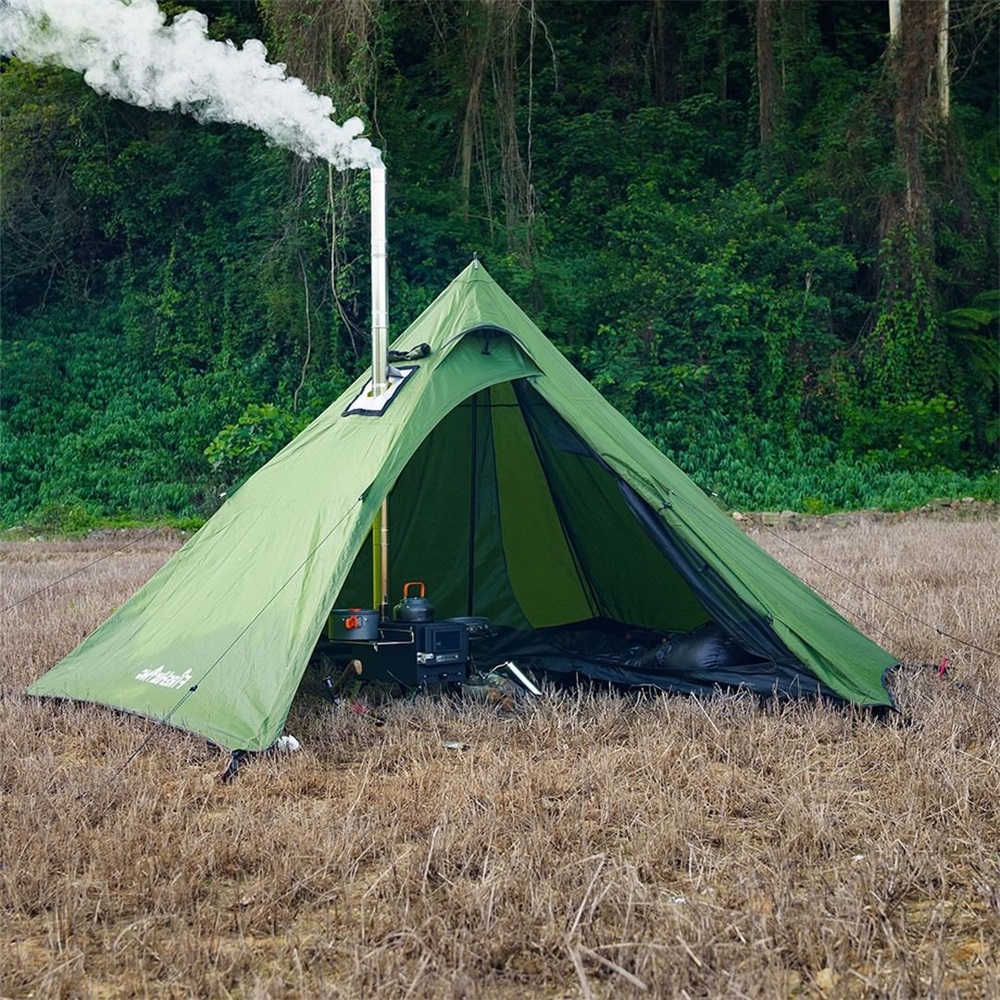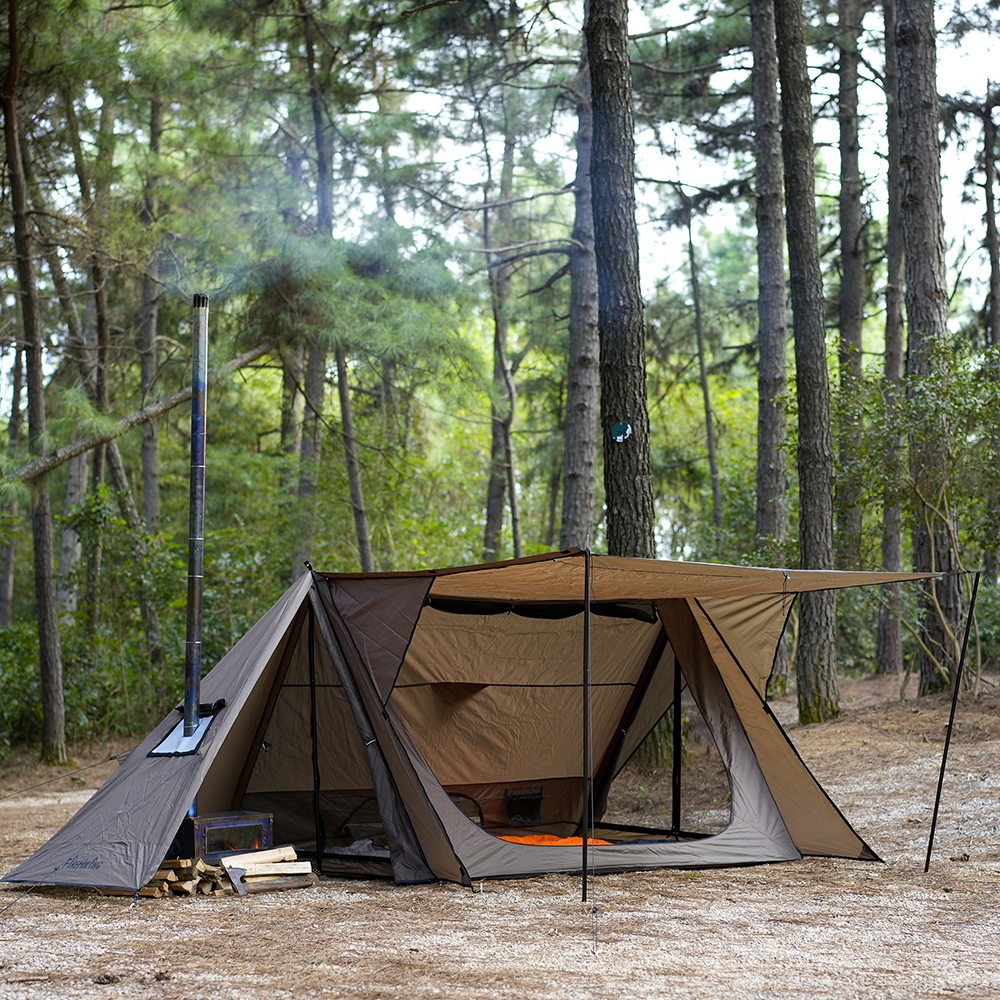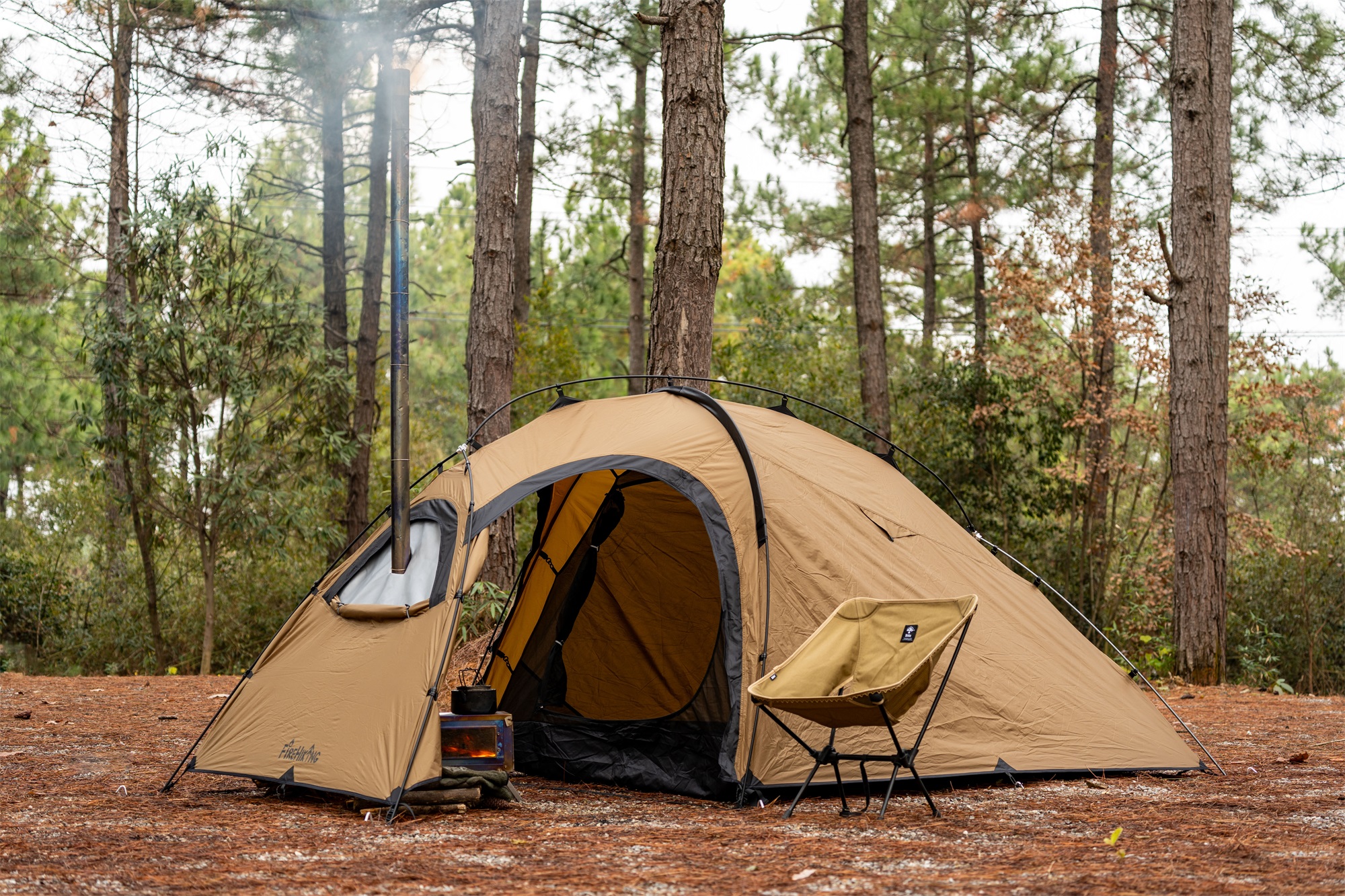1 Person Hot Tent (3)
Ready to enjoy the world alone?
Choose a solo 4-season tent with stove jack and start packing your backpack!
- Category
-
- Best 5 Tipi Tent for Camping For Sale
- Camping Tipi Tent Collections For Sale
- Best Tipi Tent Collections For Sale
- Best 5 Teepee Tent for Camping For Sale
- Camping Teepee Tent Collections For Sale
- Best Teepee Tent Collections For Sale
- Best Tipi Hot Tent Collections For Sale
- Best 5 Pyramid Tent for Camping For Sale
- Camping Pyramid Tent Collections For Sale
- Best Pyramid Tent Collections For Sale
- Best Wood Stove Tent for Camping For Sale
- Camping Stove Tent Collections For Sale
- Best Stove Tent Collections For Sale
- 1 Person Hot Tent
- 2 Person Hot Tents
- 4 Person Hot Tents
- 8 Person Hot Tents
- Tipi Tents
- Winterized Tent / 4 Season Tent
- Hot Tent Stoves | Portable Titanium Stoves for Camping for Sale
- Tent Stove & Fire Pits
- Hot Tent with Stove Jack for Camping
- Yurt Tent
- Brand
- FireHiking
|
|
LEVA Solo Tent |
Firefort | Fireden |
|---|---|---|---|
|
Season |
4 Season |
4 Season |
4 Season |
|
Color |
Olive Green |
Deep Taupe |
Brown |
|
Tent Fabric |
66D 210T PU Fabric |
70D 190T Ripstop Nylon |
20D 400T Silicone-Coate |
|
Waterproof Rating |
2000mm |
2000mm |
3000mm(4000mm floor) |
|
Tent Weight |
3.75 lb/1.7 kg |
8.8lb/4kg |
7.1lb/3.2kg |
|
Peak Height |
5.2ft/160cm |
4.1ft/125cm |
4.3ft/130cm |
|
Packed Size |
51 x 25 x 15 cm/20" x 10" x 6" |
50x19×19 cm/20"x7.5"x7.5 |
53x23x16cm/20.9"9.1"6.3" |
Solo camping presents challenges and adventures that push personal boundaries. It encourages stepping out of your comfort zone, testing your skills, and embracing new experiences. Overcoming these challenges can lead to a sense of accomplishment and personal fulfillment. It's important to note that camping alone requires careful planning, preparation, and safety measures. Always inform someone about your itinerary, pack necessary supplies, and be mindful of your surroundings. Solo camping can be a transformative and empowering experience, allowing you to disconnect from the world and reconnect with yourself and nature. Go on reading to pick up some useful tips on how to organize your solo trip and choose your best one-person all weather hot tent.
5 Must Have Tips for Solo Camping
1. Plan and Prepare Your Best 1 Person Hot Tent:
2. Prioritize Safety:
3. Master Campsite Setup:
4. Stay Aware of Your Surroundings:
5. Embrace Self-Reliance and Self-Care:
Do's and Don'ts of Solo Hot Tents
When choosing a 1-person hot tent, consider the following factors: size and weight for portability, durability and weather resistance for outdoor use, good ventilation to minimize condensation, compatibility with wood stoves if you plan to use one, ease of installation, interior features for organization, and price and budget. By evaluating these aspects, you can choose a 1-person hot tent that meets your needs and ensures a comfortable and enjoyable camping experience.
If you need a matching hot tent wood stove, you can visit: FireHiking Tent Stove
- Company Infomation
- About us
- FireHiking Story
- Contact Us
- Notice
- Blog
- Company Policies
- Payment Policy
- Return&Refund Policy
- Shipping Policy
- Privacy Policy
- Intellectual Property Rights
- Become Affiliate
- Terms Of Use
- Terms of Use
- User Center
- Forget Password
- My Orders
- Tracking Order
- My Account
- Register









